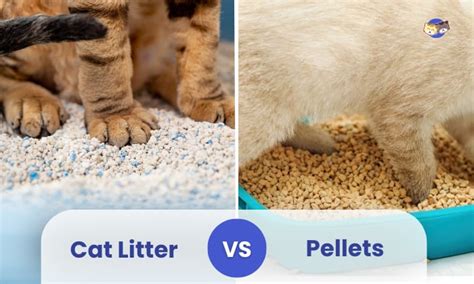Introduction
For devoted cat owners, providing a comfortable and healthy life for their beloved companions is a top priority. Cat litter and mineral supplements play crucial roles in maintaining feline well-being, addressing specific needs and health concerns. In this comprehensive guide, we delve into the world of cat litter and mineral supplements, exploring their functions, benefits, and how to choose the best options for your furry friend.

Cat Litter: A Necessity for Feline Hygiene
Cat litter serves as a designated area for cats to eliminate waste, ensuring a clean and sanitary environment for both the pet and the owner.
Types of Cat Litter
Various types of cat litter exist, each with its own advantages and disadvantages:
| Type | Benefits | Drawbacks |
|---|---|---|
| Clay | Economical, absorbent, clumps well | Dusty, tracks easily |
| Pine | Natural, biodegradable, absorbs odor | Can be messy, may not clump |
| Crystal | Highly absorbent, odor-controlling | Expensive, can be sharp on paws |
| Paper Pellets | Flushable, compostable, lightweight | Less absorbent, may disintegrate |
| Silica Gel | Hypoallergenic, non-toxic, long-lasting | Can be expensive, creates static |
Choosing the Right Cat Litter
Consider these factors when selecting cat litter:
- Absorption and Clumping: Opt for litters that absorb moisture quickly and form firm clumps, making it easy to scoop and remove waste.
- Odor Control: Choose litter that effectively neutralizes or absorbs odors, keeping your home fresh.
- Tracking: Consider litters that minimize tracking outside the litter box to reduce mess and cleaning.
- Texture: Select a litter that feels comfortable on your cat’s paws, avoiding materials that may irritate or cause discomfort.
- Allergies: If your cat or family members have allergies, opt for hypoallergenic or non-toxic litters.
Mineral Supplements: Enhancing Feline Health
Mineral supplements provide essential nutrients that may be lacking in a cat’s diet, promoting overall health and well-being.
Types of Mineral Supplements
Various mineral supplements are available, targeting specific health concerns:
| Supplement | Benefits | Common Use |
|---|---|---|
| Calcium | Bone and dental health, muscle function | Kitten growth, pregnant cats |
| Phosphorus | Bone and dental health | Energy production |
| Potassium | Heart and blood pressure regulation | Kidney disease |
| Sodium | Fluid balance, nerve function | Dehydration |
| Magnesium | Muscle and nerve function | Behavior problems |
Choosing the Right Mineral Supplement
Consult your veterinarian before administering any mineral supplements to ensure they are safe and appropriate for your cat’s individual needs. Consider:
- Specific Health Needs: Determine if your cat has any particular health conditions or deficiencies that require supplementation.
- Dosage and Frequency: Follow the veterinarian’s instructions carefully to avoid overdosing or under-dosing.
- Form and Delivery: Supplements come in various forms (tablets, powder, liquid) and can be administered orally or added to food. Choose a form that is convenient and palatable for your cat.
Transitioning Between Litters and Supplements
When changing cat litter or introducing mineral supplements, proceed gradually to minimize stress or discomfort for your cat:
- Litter: Gradually mix the new litter with the old over a few days, increasing the proportion of the new litter until your cat fully transitions.
- Supplements: Start by giving a small dose of the supplement and gradually increase the amount as recommended by your veterinarian.
Common Mistakes to Avoid
- Using Unsuitable Cat Litter: Avoid using litters that are too dusty, sharp, or irritating to your cat’s paws.
- Overfeeding Mineral Supplements: Follow the veterinarian’s instructions carefully to prevent overdosing, which can lead to health problems.
- Sudden Changes: Introduce changes in litter or supplements gradually to avoid upsetting your cat’s routine.
- Ignoring Allergies: If your cat or family members have allergies, carefully choose hypoallergenic litters and supplements.
- Ignoring Specific Health Needs: Consult your veterinarian if your cat has any specific health conditions that may require specialized litter or supplements.
FAQs
- How often should I change my cat’s litter? Change litter daily to prevent odor, bacteria buildup, and discomfort.
- Which type of cat litter is best for kittens? Fine-grain, unscented clay litter is gentle on kittens’ paws.
- Can I use human mineral supplements for my cat? No, always consult your veterinarian before giving any human supplements to your cat.
- What are the signs of mineral deficiency in cats? Lethargy, muscle weakness, poor coat quality, and behavioral changes can indicate deficiencies.
- How do I know if my cat needs mineral supplements? Consult with your veterinarian for a proper diagnosis and supplement recommendations.
Conclusion
Cat litter and mineral supplements play vital roles in your feline companion’s health and happiness. By choosing the right products and following best practices, you can ensure a comfortable and well-balanced life for your furry friend. Remember to consult with your veterinarian regularly to address any specific health concerns and make informed decisions about your cat’s care.





















